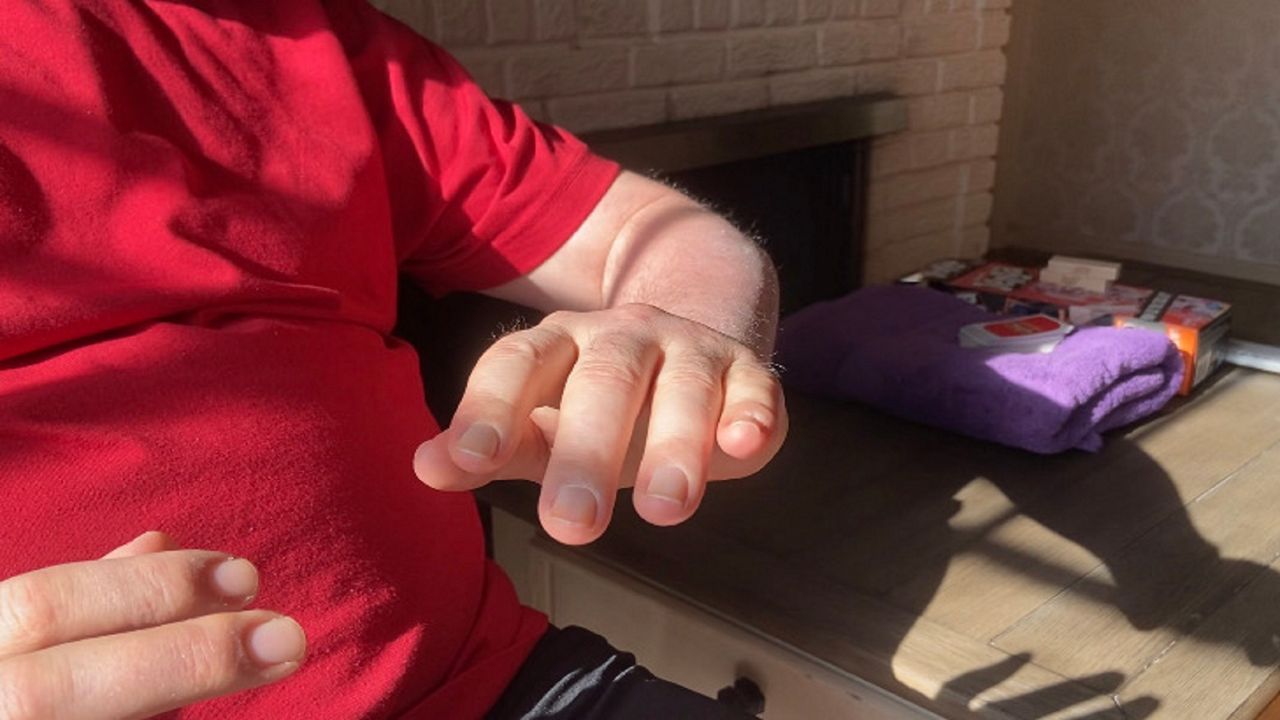CLEVELAND — The Cleveland Clinic is working to improve mobility in those who have suffered a stroke. The hospital is the site of the only human trial in the U.S. for deep-brain stimulation in stroke patients.
What You Need To Know
- The Cleveland Clinic is the site of the only human trial in the U.S. for deep-brain stimulation in stroke patients
- It’s called the EDEN Study: Electrical Stimulation of the Dentate Nucleus area, for Improvement of Upper Extremity Hemiparesis due to Ischemic Stroke
- Doctors implant a device that uses electrical stimulation on the part of the brain that makes those connections to the nerves in the arm and hand
One of those patients is Dave Morrissey, who suffered a stroke in 2018.
“I called the doctor. They said yeah we need to get you in here,” Morrissey said. “They called an ambulance right away and reality had struck then. I’m like holy moly what’s going on here? They said yeah... you’ve had a stroke.”
Years later, Morrissey is working on improving the mobility on the left side of his body. He does physical therapy with household items, but the stroke caused some connections to be lost in his brain.
“In my mind I was thinking this is as good as I get. This is pretty horrible,” he said.
He enrolled in a trial through the Cleveland Clinic that studies deep brain stimulation in stroke patients.
“Somewhere along the line when we started this whole thing, a connection was made between my brain and that finger," Morrissey said as he pointed to his ring finger. "And while that doesn’t seem miraculous to move it that little tiny bit — that’s pretty crazy actually.”

Now, he said he has hope because if he puts each day together, those tiny movements turn into improvements.
“Is my hand perfect? Heck no," he said. "Do I have a long way to go? Absolutely, but I have come a heck of a long way as far as getting the left side of my upper body incorporated into the rest of my life.”
The trial focuses on the upper extremities. The Cleveland Clinic has called it the EDEN Study: Electrical Stimulation of the Dentate Nucleus area, for Improvement of Upper Extremity Hemiparesis due to Ischemic Stroke.
Doctors implanted a device that uses electrical stimulation on the part of the brain that makes those connections to the nerves in the arm and hand.
Principal Investigator, Dr. Andre Machado, M.D. Ph.D, said the goal is to make this treatment widely available to stroke patients everywhere. He says,
“If you ask the patients that had this, it is the difference between being able to cook or not, is the difference between being able to cut down food with a knife or not, it is the difference between being able to go to the bathroom alone or not, or if you need to bring someone else there to help button your pants after you're done,” he said “And these things that we do without thinking, are very important to our quality of life. And we often only realize how important they are — after we lose it.”
